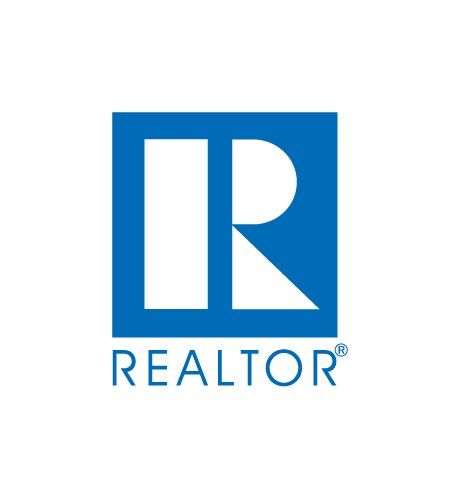Understanding the Different Types of Home Loans: A Guide for Prospective Homebuyers
Understanding the Different Types of Home Loans: A Guide for Prospective Homebuyers

Purchasing a home is a significant milestone in anyone's life, often requiring careful financial planning and consideration. One of the key steps in this process is securing the right type of home loan. With various loan options available, it's crucial to understand which one suits your financial situation and long-term goals. In this post, we'll explore the different types of home loans available to homebuyers.
1. Conventional Loans
Conventional loans are not insured or guaranteed by the federal government. They come in two main forms: conforming and non-conforming.
- Conforming loans meet the standards set by government-sponsored enterprises Fannie Mae and Freddie Mac. The maximum loan limit for a conforming loan is $726,200 for most areas in 2023.
- Non-conforming loans, also known as jumbo loans, exceed these limits and typically have stricter credit requirements.
Conventional loans are popular due to their flexibility and competitive interest rates, especially for borrowers with strong credit scores and significant down payments.
2. FHA Loans
Federal Housing Administration (FHA) loans are government-backed loans designed to help lower-income borrowers and those with lower credit scores. With a minimum down payment of 3.5% and more lenient credit requirements, FHA loans are an attractive option for first-time homebuyers.
One of the key benefits of FHA loans is the lower down payment requirement, but borrowers are required to pay mortgage insurance premiums (MIP) for the life of the loan, which can increase the overall cost.
3. VA Loans
Veterans Affairs (VA) loans are available to veterans, active-duty service members, and eligible surviving spouses. These loans are guaranteed by the VA and offer numerous advantages:
- No down payment required
- No private mortgage insurance (PMI)
- Competitive interest rates
VA loans are an excellent option for those who qualify, providing significant savings and easier qualification standards.
4. USDA Loans
The U.S. Department of Agriculture (USDA) loans are aimed at helping low- to moderate-income buyers in rural areas. These loans offer:
- No down payment required
- Competitive interest rates
- Lower mortgage insurance costs compared to FHA loans
USDA loans are intended for primary residences in eligible rural areas, making homeownership accessible to those in less densely populated regions.
5. Adjustable-Rate Mortgages (ARMs)
Adjustable-rate mortgages (ARMs) have interest rates that change periodically based on market conditions. Typically, ARMs start with a lower fixed interest rate for a set period (e.g., 5, 7, or 10 years) and then adjust annually.
While ARMs can offer lower initial payments, they come with the risk of higher payments in the future if interest rates rise. These loans are suitable for buyers who plan to move or refinance before the adjustment period begins.
6. Fixed-Rate Mortgages
Fixed-rate mortgages have a constant interest rate and monthly payments that never change. Common terms are 15, 20, or 30 years. The stability of fixed-rate mortgages makes them a popular choice, particularly for buyers planning to stay in their homes long-term.
7. Interest-Only Mortgages
Interest-only mortgages allow borrowers to pay only the interest for a specific period, usually 5-10 years. After this period, payments increase significantly as both principal and interest must be paid.
These loans can be risky, as the initial low payments can be tempting, but the subsequent higher payments can be challenging to manage.
Conclusion
Choosing the right home loan depends on your financial situation, future plans, and eligibility for certain programs. Conventional loans offer flexibility and competitive rates for those with strong credit, while government-backed loans like FHA, VA, and USDA loans provide opportunities for those with specific needs or qualifications.
Understanding these options can help you make an informed decision and secure a loan that aligns with your homeownership goals. For personalized advice, consider consulting with a seasoned Realtor or mortgage advisor to explore the best loan options for your unique circumstances.
Sources
- Federal Housing Finance Agency. (2023). Conforming Loan Limits. Retrieved from FHFA
- U.S. Department of Housing and Urban Development. (2023). FHA Loan Requirements. Retrieved from HUD
- U.S. Department of Veterans Affairs. (2023). VA Home Loan Program. Retrieved from VA
- U.S. Department of Agriculture. (2023). USDA Rural Development Home Loans. Retrieved from USDA
Blog with Brittany
The National Association of REALTORS® (NAR) is committed to providing an accessible website. If you have difficulty accessing content, have difficulty viewing a file on the website, or notice any accessibility problems, please contact NAR to specify the nature of the accessibility issue and any assistive technology you use. NAR will strive to provide the content you need in the format you require.
©Copyright - All Rights Reserved
Website Powered by National Association of REALTORS®











